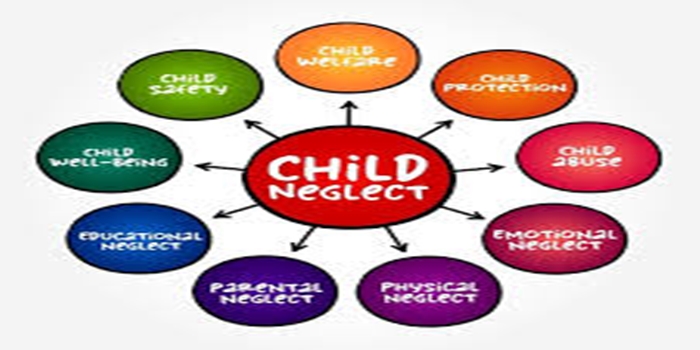In this article, we discussed the meaning of parental neglect, the causes, how to manage it, we also talked about the effect of parental neglect on children
Definition
child neglect is an act of caregivers (e.g., parents) that results in depriving a child of their basic needs, such as the failure to provide adequate supervision, health care, clothing, or housing, as well as other physical, emotional, social, educational, and safety needs.
Causes of Parental Neglect on Children
Poverty: if the parents do not have enough money to pay the bills, the sad truth is that children are not always the priority that they need to be. Even if families are extremely poor there should always be enough assistance that children should never be neglected as long as their care is made a priority.
Lack of education: Parents may have missed much of their own education having been victims of neglect themselves. They may have no qualifications and so struggle to obtain employment which makes them dependent on “benefits”. Such an existence is a passport to poverty. Parents may also have little knowledge to equip them in raising children. They themselves may be the product of parental neglect, and having missed out on an education, they lack the basic skills to provide a decent home environment.
Serious marital/relationship problems: Children often witness or experience the fallout of their parent’s relationship issues. A messy breakup or divorce can be very time consuming and emotionally draining. This can lead to parents neglecting their children while they look after their own issues. It can affect not just the child’s physical wellbeing but their psychological health too. Their sleep patterns can be adversely affected. Their schooling can be affected too, perhaps because because they are worrying about what is happening at home. On a practical level there may be new partners on the scene, or the breadwinner has departed causing financial turmoil.
Violence between parents/careers: again, children often witness the fallout if not the violence itself, and can be at risk of being recipients too. The effect can be profound both physically and psychologically and can have long term developmental A parent may be emotionally very dependent on an abusive partner and fail to protect a child from abuse or harm. It is neglectful to leave a child in the care of someone you know will harm them.
Lack of support from the extended family: the absence of grandparents, aunts and uncles, can mean that a child’s parent(s) has no back-up. With no one to “baby-sit” or child mind whilst they go shopping, or to work, or to provide support and guidance, parents can sometimes see no alternative but to leave their children to fend for themselves. The beneficial role of family in helping to look after children is immeasurable and, consequentially, its absence is a major factor in neglect cases.
A lack of knowledge and skills in bringing up children: A parent may themselves be the victim of parental neglect. It will be no surprise to find that they are already on the back foot when it comes to looking after and raising a child themselves. The neglect their experienced may mean they have missed large parts of their education. and so have been deprived of other useful sources of knowledge.
Loneliness and social isolation: The inability to seek support and advice from family and friends inevitably impacts on a parent’s ability to care for their child. The psychological impact of isolation can be profound when faced with the responsibility of raising a child alone, and possibly in difficult circumstances. The impact on the parent could be such to put the child at risk of neglect as a direct consequence.
Unemployment: The lack of a stable, regular, and well-paying job inevitably impacts on a parent’s ability to provide a positive environment to raise children. Low income is associated with poor diet, inadequate housing, and poor health. When a parent loses their job, the loss of self-worth and ability to provide for the family causes a massive psychological impact on a parent that cannot be underestimated. This in turn can impact on the parent’s capability to look after their child, and so in itself is a risk factor.
The Effects of Parental Neglect on Children
neglect include behavioral and achievement problems in school; heart, lung and liver disease; obesity and diabetes; depression, anxiety disorders, and increased suicide attempts; increased criminal behaviors, illicit drug use and alcohol abuse; increased risky sexual.
How to Manage Parental Neglect on Children
Practice Self-Compassion.
Engage Your Body & Mind.
Build Emotional Intelligence.
Learn & Practice Regulation Skills.
Write a Letter to Your Childhood Self.
Heal Your Inner Child.
Reach Out for Support.
Advocate For Yourself & Others.
Conclusion
A form of child abuse, child neglect is an act of caregivers (e.g., parents) that results in depriving a child of their basic needs, such as the failure to provide adequate supervision, health care, clothing, or housing, as well as other physical, emotional, social, educational, and safety needs.
READ: Single Parenting and Co-parenting


